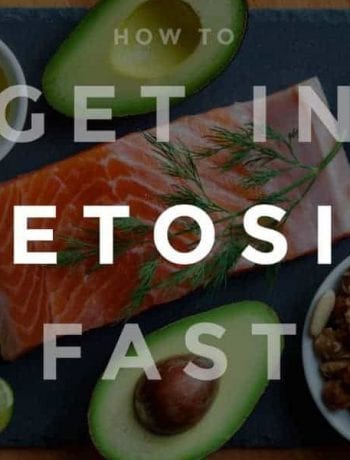Food substitutes play an essential role in our lives. They provide us with a means of sustenance when we are unable to eat our regular diet. In many cases, they allow us to enjoy familiar flavors and textures when we cannot consume certain foods for health reasons.
While food substitutes offer a wide range of benefits, there are some potential dangers associated with their use that should be considered. This article will explore the significance of food substitutes and examine the risks and benefits associated with their use. You can also read more about food substitutes at The Kitchen Community.
What are food substitutes, and what do they do for the body?

Source: brighamhealthhub.com
A food substitute is any food that can be used in place of another. Food substitutes are often used when someone is trying to lose weight, has food allergies, or is following a special diet. They can be used to make up for nutrients lacking in the diet. For example, a person who does not eat meat may use a tofu burger as a meat substitute. There are many different types of food substitutes available on the market today. Some common examples include:
- Meat substitutes: Tofu, tempeh, seitan, and veggie burgers
- Dairy substitutes: Soy milk, almond milk, and coconut milk
- Egg substitutes: Flaxseed meal, chia seeds, and vegan egg replacers
- Flour substitutes: Almond flour, coconut flour, and gluten-free flour
- Sugar substitutes: honey, agave nectar, and stevia
There are plenty of reasons why some might choose to use food substitutes. For some, the decision is based on health concerns. Others may be trying to lose weight or save money. Some people prefer the taste or texture of certain substitutes over the originals. Whatever the reason, it is essential to consider the pros and cons of using any food substitute before deciding.
How to choose the suitable food substitute for your needs

Source: helpguide.com
When choosing a food substitute, it is crucial to consider your individual needs and goals. If you’re trying to lose weight, you’ll want to choose a substitute lower in calories than the original food. If you’ve food allergies, you will need to find substitutes that do not contain the allergens you are trying to avoid. Different types of substitutes are available, so it is essential to do your research before making a decision. Once you’ve decided on a few options, try them to see if they meet your needs and preferences.
The benefits of using food substitutes
There are many benefits associated with using food substitutes, and perhaps the most obvious benefit is that they can help you lose weight. You can reduce your calorie intake and shed unwanted pounds by substituting high-calorie foods with lower-calorie alternatives.
Additionally, food substitutes can be used to make up for nutrients lacking in the diet. For example, if you do not eat meat, you may use a tofu burger as a protein-rich substitute. Food substitutes can also be used to add variety to your diet. If you are following a special diet, such as a vegan or gluten-free diet, substitutes can help you to enjoy familiar foods without compromising your dietary restrictions.
Another benefit of using food substitutes is that they can help you to save money. Using cheaper alternatives to expensive ingredients, you can stretch your food budget and make your meals go further. Additionally, many substitutes can be made at home with simple ingredients that you may already have on hand, which can further help reduce your food costs.
Finally, food substitutes offer a convenient way to enjoy familiar flavors and textures when you cannot eat certain foods for health reasons. If you’re allergic to dairy, you can use soy-based milk as a dairy-free alternative. If you are trying to avoid gluten, many gluten-free flour substitutes can be used instead of traditional wheat flour.
The risks associated with food substitutes

Source: food-safety.com
While there are many benefits to using food substitutes but also some risks. First, it is essential to remember that not all substitutes are created equal. Some may be higher in calories or sugar than the originals, so it is essential to read labels carefully and choose substitutes wisely.
Some people may have adverse reactions to certain food substitutes. For example, some people may experience digestive issues when they consume soy-based products. If you are considering using a food substitute, you must consult with your doctor or dietitian first to ensure it is safe for you.
Finally, it is essential to remember that food substitutes can never wholly replace the nutrients found in whole foods. Tofu’s a good source of protein, but it does not contain all the nutrients in meat. As such, it is essential to include a variety of nutrient-rich foods in your diet in addition to substitutes.
When used wisely, food substitutes can be a helpful tool for weight loss, dietary restriction, and saving money. However, carefully considering the risks and benefits is vital before deciding. Consult your doctor or dietitian if you have any questions or concerns.
How to make sure you’re getting all the nutrients your body needs

Source: healthline.com
You can do some things to ensure you’re getting all the nutrients your body needs, even if you’re using food substitutes. First, read labels carefully and choose substitutes high in nutrients and low in calories. Additionally, include a variety of nutrient-rich foods in your diet to supplement the nutrients found in substitutes.
Finally, consult your doctor or dietitian if you have any questions or concerns about your diet. Following these tips can help ensure you get all the nutrients your body needs for optimal health.




